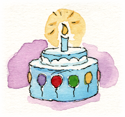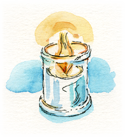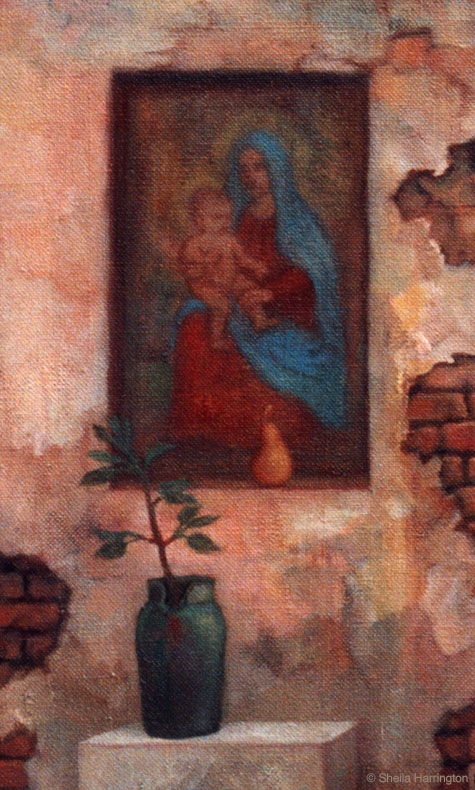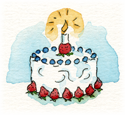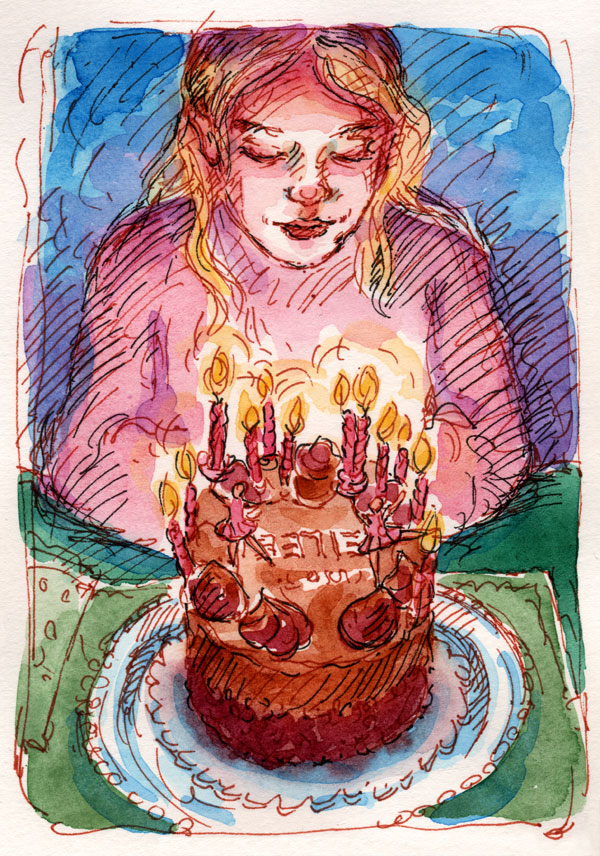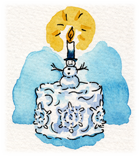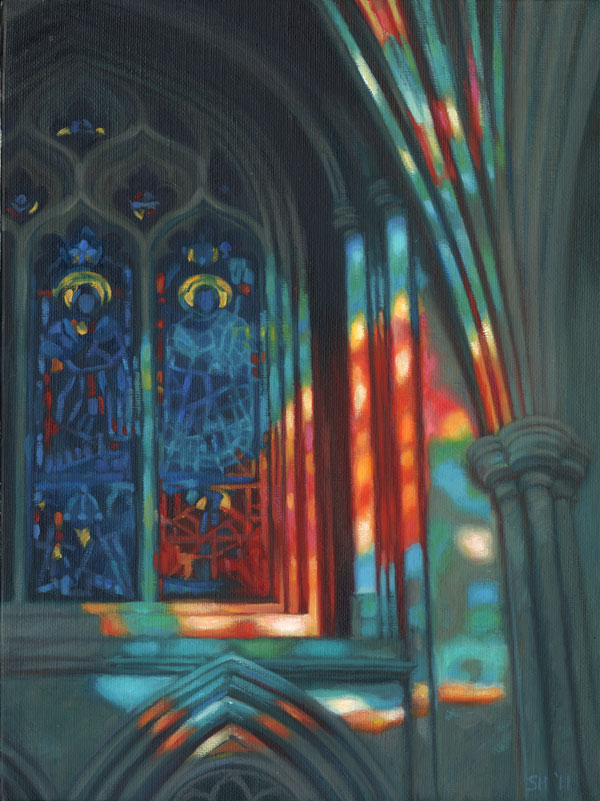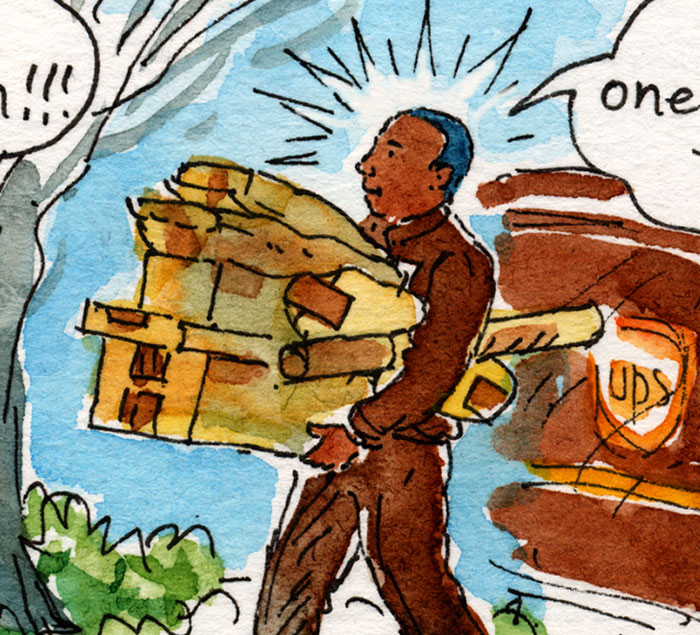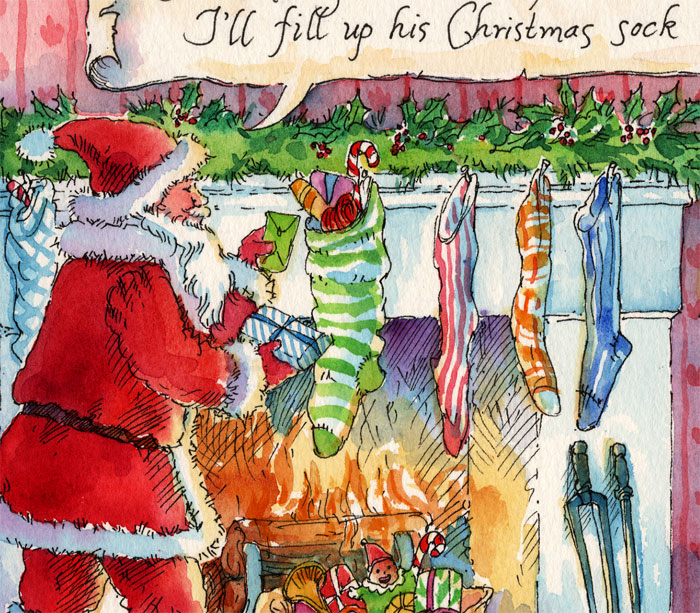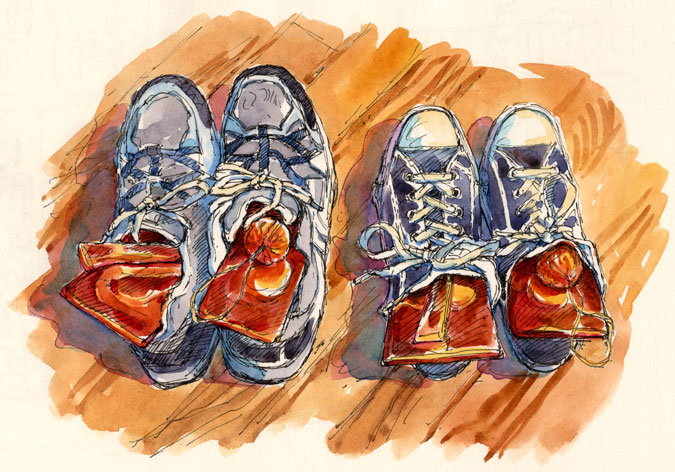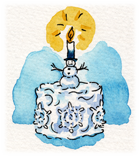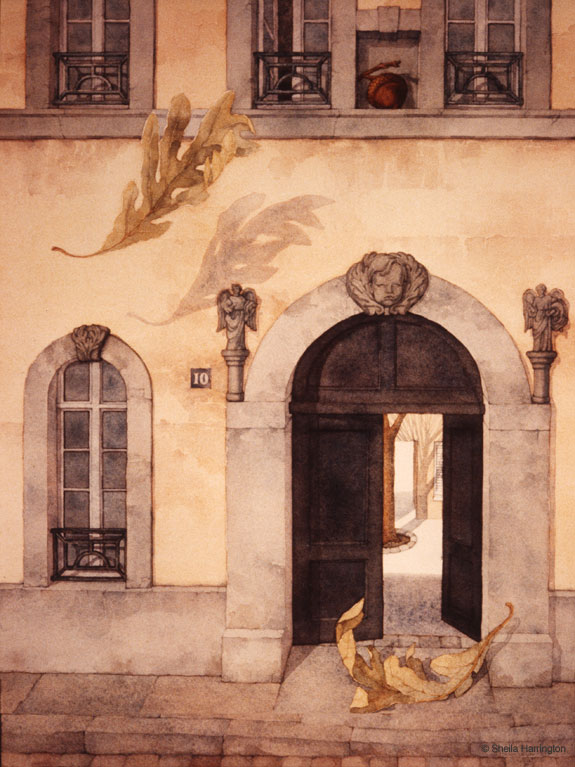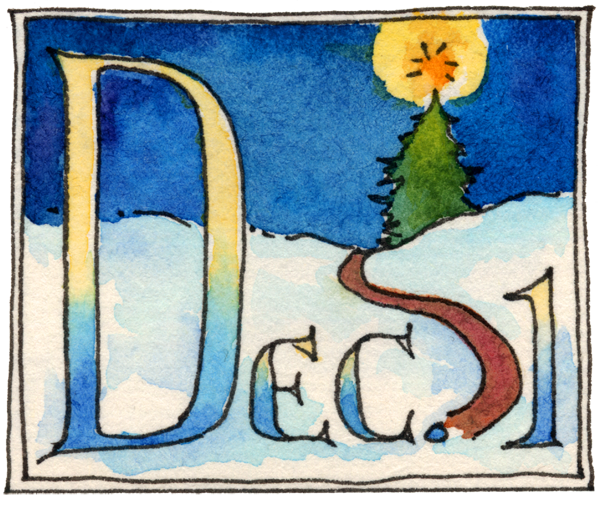In honor of my husband’s birthday, I post a sketch of him on holiday, painting, which is something I hope he will find more time to do as he fulfills his ongoing quest for retirement.
He shares this birthday with writer Alfred de Musset (1810-1857), and so I post a poem that speaks eloquently, and appropriately, of the overlooked and sleeping poet universally within.
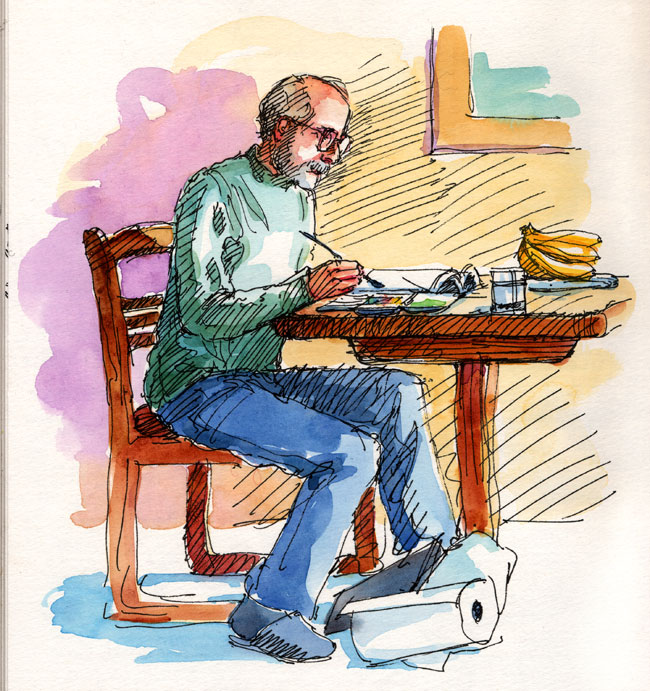
Ami, tu l’as bien dit: en nous, tant que nous sommes,
Il existe souvent une certaine fleur
Qui s’en va dans la vie et s’effeuille du coeur.
“Il existe, en un mot, chez les trois quarts des hommes,
Un poète mort jeune à qui l’homme survit.”
Tu l’as bien dit, ami, mais tu l’as trop bien dit.
Tu ne prenais pas garde, en traçant ta pensée,
Que ta plume en faisait un vers harmonieux,
Et que tu blasphémais dans la langue des dieux.
Relis-toi, je te rends à ta Muse offensée ;
Et souviens-toi qu’en nous il existe souvent
Un poète endormi toujours jeune et vivant.
Friend, you have spoken well: in us, such as we are,
There frequently exists a certain flower
That blossoms, fades and from the heart its leaves are shed.
“In three quarters of mankind, you understand,
A poet has died young yet outlived by the man.”
Well said, my friend—but a little too well said.
You didn’t pay attention, laying out your thought,
That your pen made poetry then and there, unsought.
In his own tongue you took Apollo’s name in vain.
I betray you to your injured Muse: Read again,
And remember that in all of us there often keeps
A poet young and vibrant, who is not dead, but sleeps.
—Alfred de Musset
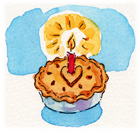 Jimmy
Jimmy


